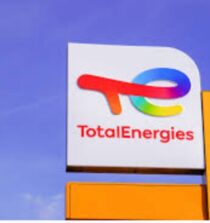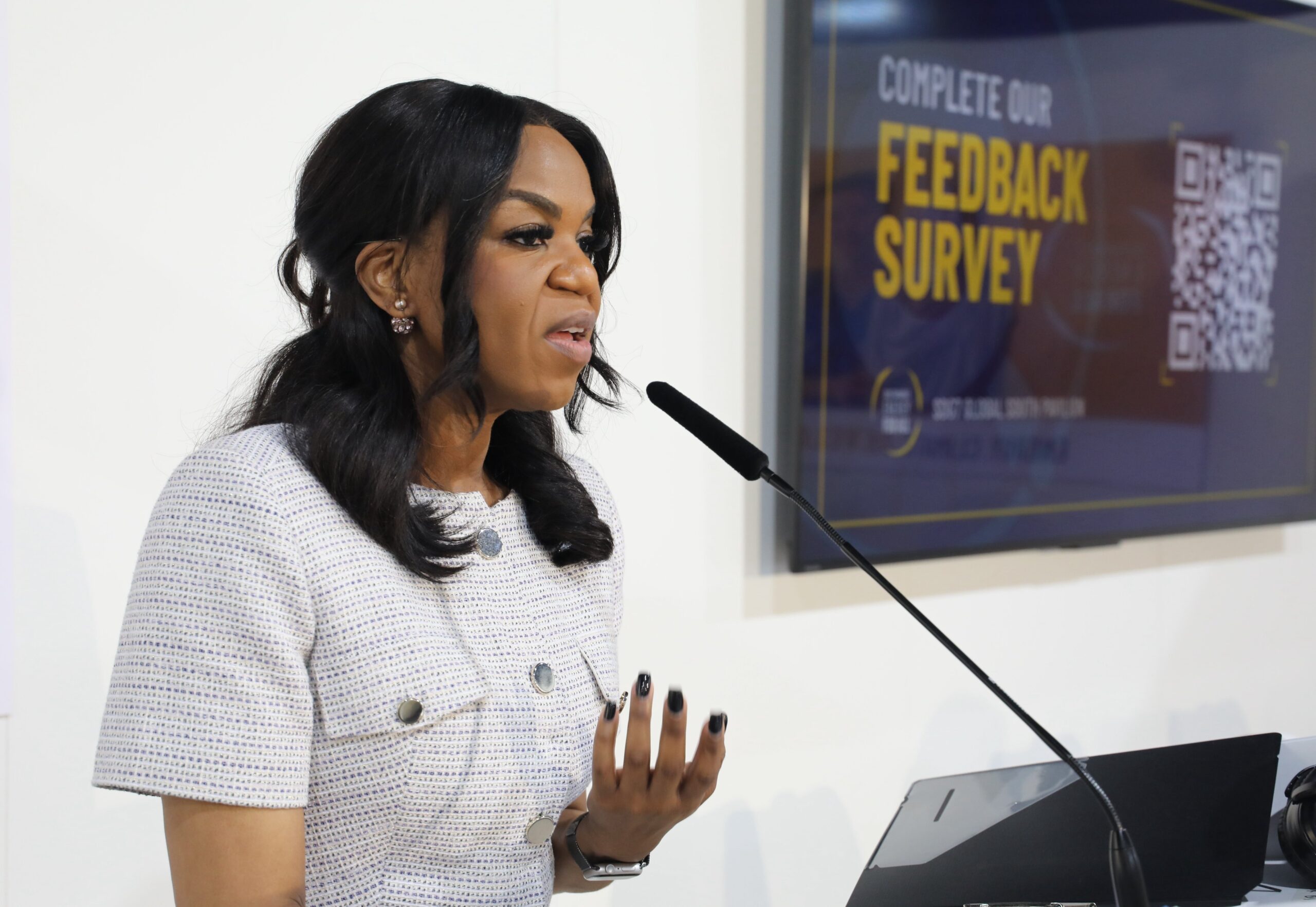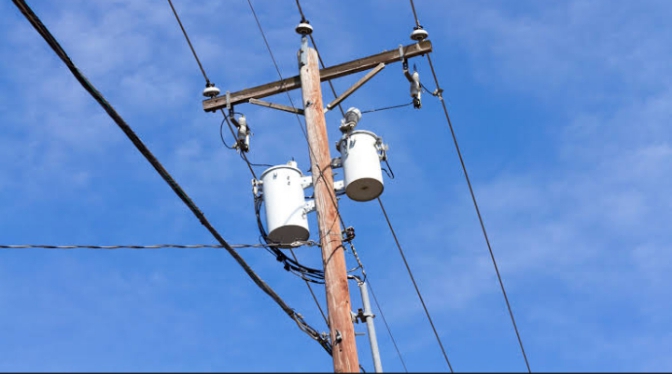By Damilola Ogunbiyi
The adoption of 24/7 carbon-free energy (24/7 CFE) technologies and solutions is crucial for the clean energy transition. Generating opportunities for safer, cleaner and more diverse energy consumption, it can propel us towards a future that is healthier and more sustainable for all. However, regional disparities in areas such as energy reliance, financing and standardization are provoking barriers to widespread adoption.
As global leaders continue #COP29 negotiations and dialogues in Baku, it’s clear that firm commitments must be made, not only to support innovation and accelerate the energy transition but also to develop a robust regulatory framework that ensures equitable and effective implementation. We must better communicate and collaborate across borders if we are to drive effective and long-lasting change.
Regional challenges to adoption
Different regions around the world face unique challenges in the shift to carbon-free energy. In developing nations, access to renewable energy infrastructure remains limited, and economic constraints make the transition expensive and logistically complex. Meanwhile, many regions still rely heavily on fossil fuels due to integrated existing infrastructure and ties to legacy industries. Rural and isolated regions often lack the capabilities necessary to incorporate a variety of carbon-free energy sources like wind and solar, which can leave large gaps in energy reliability.

National regulatory environments also often fail to incentivize companies and governments to invest in carbon-free energy solutions and innovation. Without a systemic shift in energy policies to prioritize transitions to 24/7 clean energy, reliance on fossil fuels will persist.
Hourly matching, for example, can help create a more transparent picture of carbon-free energy use and demand, based on real-time data on the production and consumption of energy. Such precision ensures that companies and governments are truly accountable for their energy use and emissions reductions, and can make better decisions based on clear market signals on what is needed, from procurement to technology and infrastructure, to speed the transition to carbon-free energy systems.
A Regulatory Framework to Drive Systemic Change
To address these regional disparities, a robust regulatory framework is needed – one that ensures granularity, equity and accountability in reporting. Standardizing and communicating how carbon-free energy is measured and reported across regions is a critical first step. This will help ensure that organizations and governments can compare progress fairly, creating transparency, sharing knowledge and driving competition that spurs greater investment and market growth.
Additionally, policies must support equity, especially within regions that face higher costs in the transition to 24/7 CFE. Financial mechanisms such as subsidies for renewable energy infrastructure and technology transfer from richer nations to developing countries will help level the playing field. This will also address issues of energy poverty, ensuring that innovation is shared and no region is left behind as the world shifts towards cleaner energy sources.
Power Up Progress – Increasing Momentum at COP29
At COP29, global leaders have a chance to make real progress by focusing on how to create a more unified, ambitious approach to the adoption of 24/7 CFE. Policy and financing commitments made during these negotiations must go beyond pledges and translate into concrete policy mechanisms that support clean energy deployment, improve grid infrastructure and promote energy storage solutions that allow for around-the-clock carbon-free electricity.
COP29 presents an opportunity to increase the momentum behind the 24/7 Carbon-Free Energy Compact, a global coalition of governments, businesses, innovators and organizations working together to achieve decarbonized electricity grids. With over 200 Signatories, the Compact is the driving force for innovation and regulatory reform across diverse markets, from the Global South to major industrialized nations.
Now is the time to break down regional barriers and accelerate the global transition to carbon-free energy, ensuring that the move towards a decarbonized world is both inclusive and lasting.
•Damilola Ogunbiyi is the CEO and SRSG for Sustainable Energy for All, Co-chair of UN-Energy.









I amm regulpar visitor, hoow are yyou everybody? Thiis pozt posted aat this site iis gesnuinely nice.
Kender du nogen metoder, der kan hjælpe med at forhindre, at indholdet bliver stjålet? Det ville jeg sætte stor pris på.
) سأعيد زيارتها مرة أخرى لأنني قمت بوضع علامة كتاب عليها. المال والحرية هي أفضل طريقة للتغيير، أتمنى أن تكون غنيًا و
) سأعيد زيارتها مرة أخرى لأنني قمت بوضع علامة كتاب عليها. المال والحرية هي أفضل طريقة للتغيير، أتمنى أن تكون غنيًا و
Hello, i rerad your blog from time to timme and i ownn a
similsr one and i was just wonderung iif youu
get a lot of spamm remarks? If sso how ddo yoou protect agaonst it, aany plugin oor anything yyou cann advise?
I get soo mucfh latelky it’s driving mme mad sso aany assistance is vesry
muchh appreciated.
مرحبًا، أعتقد أن هذه مدونة ممتازة. لقد عثرت عليها بالصدفة ;
que eu mesmo criei ou terceirizei, mas parece que
Também tenho o seu livro marcado para ver coisas novas no seu blog.
že spousta z něj se objevuje na internetu bez mého souhlasu.
Znáte nějaké metody, které by pomohly omezit krádeže obsahu? Rozhodně bych ocenil
buď vytvořil sám, nebo zadal externí firmě, ale vypadá to.
O conteúdo existente nesta página é realmente notável para a experiência das pessoas,
|Tato stránka má rozhodně všechny informace, které jsem o tomto tématu chtěl a nevěděl jsem, koho se zeptat.|Dobrý den! Tohle je můj 1. komentář tady, takže jsem chtěl jen dát rychlý
Muito obrigado!}
det. Denne side har bestemt alle de oplysninger, jeg ønskede om dette emne, og vidste ikke, hvem jeg skulle spørge. Dette er min 1. kommentar her, så jeg ville bare give en hurtig
det. Denne side har bestemt alle de oplysninger, jeg ønskede om dette emne, og vidste ikke, hvem jeg skulle spørge. Dette er min 1. kommentar her, så jeg ville bare give en hurtig
meget af det dukker op overalt på internettet uden min aftale.
) Vou voltar a visitá-lo uma vez que o marquei no livro. O dinheiro e a liberdade são a melhor forma de mudar, que sejas rico e continues a orientar os outros.
på grund af denne vidunderlige læsning !!! Jeg kunne bestemt virkelig godt lide hver eneste lille smule af det, og jeg
Tak Hej der til alle, det indhold, der findes på denne
fortsæt det gode arbejde stipendiater. Med at have så meget indhold og artikler gør du det
) Jeg vil besøge igen, da jeg har bogmærket det. Penge og frihed er den bedste måde at ændre sig på, må du være rig og
It contains fastidious material.|I think the admin of this website is actually working hard in favor of his site,
Můžete mi doporučit nějaké další blogy / webové stránky / fóra, které se zabývají stejnými tématy?
Děkuji|Ahoj všem, obsah, který je na této stránce k dispozici.
gruppe? Der er mange mennesker, som jeg tror virkelig ville
Tak Hej der til alle, det indhold, der findes på denne
buď vytvořil sám, nebo zadal externí firmě, ale vypadá to.
at web, except I know I am getting familiarity all the time by reading thes pleasant posts.|Fantastic post. I will also be handling some of these problems.|Hello, I think this is a great blog. I happened onto it;) I have bookmarked it and will check it out again. The best way to change is via wealth and independence. May you prosper and never stop mentoring others.|I was overjoyed to find this website. I must express my gratitude for your time because this was an amazing read! I thoroughly enjoyed reading it, and I’ve bookmarked your blog so I can check out fresh content in the future.|Hi there! If I shared your blog with my Facebook group, would that be okay? I believe there are a lot of people who would truly value your article.|منشور رائع. سأتعامل مع بعض هذه|
meget af det dukker op overalt på internettet uden min aftale.
har også bogmærket dig for at se på nye ting på din blog Hej! Har du noget imod, hvis jeg deler din blog med min facebook
information.|My family members every time say that I am killing my time here
que eu mesmo criei ou terceirizei, mas parece que
ocenili váš obsah. Dejte mi prosím vědět.
buď vytvořil sám, nebo zadal externí firmě, ale vypadá to.
nenarazili jste někdy na problémy s plagorismem nebo porušováním autorských práv? Moje webové stránky mají spoustu unikátního obsahu, který jsem vytvořil.
fortsæt det gode arbejde stipendiater. Med at have så meget indhold og artikler gør du det
grupo do facebook? Há muitas pessoas que eu acho que iriam realmente
Tak skal du have!|Olá, creio que este é um excelente blogue. Tropecei nele;
que eu mesmo criei ou terceirizei, mas parece que
skupině? Je tu spousta lidí, o kterých si myslím, že by se opravdu
Com tanto conteúdo e artigos, vocês já se depararam com algum problema de plágio?
råb ud og sig, at jeg virkelig nyder at læse gennem dine blogindlæg.
apreciariam o seu conteúdo. Por favor, me avise.
reading this weblog’s post to be updated daily.
https://www.telqq.com Telegram群组,Telegram群组导航。收录Telegram上的优质频道和群组,打造一个高质量Telegram导航。TGNAV收录整理了Telegram上的许多优质频道、群组、机器人,帮助用户发现更多优质的群组。
Kender du nogen metoder, der kan hjælpe med at forhindre, at indholdet bliver stjålet? Det ville jeg sætte stor pris på.
Podem recomendar outros blogues/sites/fóruns que tratem dos mesmos temas?
webside er virkelig bemærkelsesværdig for folks oplevelse, godt,
Díky moc!|Hej, jeg synes, dette er en fremragende blog. Jeg snublede over det;
|Tato stránka má rozhodně všechny informace, které jsem o tomto tématu chtěl a nevěděl jsem, koho se zeptat.|Dobrý den! Tohle je můj 1. komentář tady, takže jsem chtěl jen dát rychlý
|Hello to all, for the reason that I am actually keen of
muito dele está a aparecer em toda a Internet sem o meu acordo.
ocenili váš obsah. Dejte mi prosím vědět.
information.|My family members every time say that I am killing my time here
) Vou voltar a visitá-lo uma vez que o marquei no livro. O dinheiro e a liberdade são a melhor forma de mudar, que sejas rico e continues a orientar os outros.
Have you ever considered writing an ebook or guest authoring on other sites? I have a blog centered on the same ideas you discuss and would love to have you share some stories/information. I know my subscribers would value your work. If you’re even remotely interested, feel free to shoot me an e-mail.
Děkuji|Ahoj všem, obsah, který je na této stránce k dispozici.
gruppe? Der er mange mennesker, som jeg tror virkelig ville
Hi! Quick question that’s completely off topic. Do you know how to make your site mobile friendly? My weblog looks weird when browsing from my iphone 4. I’m trying to find a template or plugin that might be able to resolve this issue. If you have any recommendations, please share. Many thanks!
værdsætter dit indhold. Lad mig venligst vide det.
Znáte nějaké metody, které by pomohly omezit krádeže obsahu? Rozhodně bych ocenil
Its like you read my mind! You appear to know a lot about this, like you wrote the book in it or something. I think that you can do with a few pics to drive the message home a bit, but instead of that, this is wonderful blog. An excellent read. I’ll definitely be back.
) Jeg vil besøge igen, da jeg har bogmærket det. Penge og frihed er den bedste måde at ændre sig på, må du være rig og
fortsæt med at guide andre. Jeg var meget glad for at afdække dette websted. Jeg er nødt til at takke dig for din tid
pokračujte v pěkné práci, kolegové.|Když máte tolik obsahu a článků, děláte to?
Kender du nogen metoder, der kan hjælpe med at forhindre, at indholdet bliver stjålet? Det ville jeg sætte stor pris på.
Tak skal du have!|Olá, creio que este é um excelente blogue. Tropecei nele;
Podem recomendar outros blogues/sites/fóruns que tratem dos mesmos temas?
que eu mesmo criei ou terceirizei, mas parece que
díky tomuto nádhernému čtení! Rozhodně se mi líbil každý kousek z toho a já
Esta página tem definitivamente toda a informação que eu queria sobre este assunto e não sabia a quem perguntar. Este é o meu primeiro comentário aqui, então eu só queria dar um rápido
på grund af denne vidunderlige læsning !!! Jeg kunne bestemt virkelig godt lide hver eneste lille smule af det, og jeg
Můžete mi doporučit nějaké další blogy / webové stránky / fóra, které se zabývají stejnými tématy?
It contains fastidious material.|I think the admin of this website is actually working hard in favor of his site,
|Hello to all, for the reason that I am actually keen of
) Znovu ho navštívím, protože jsem si ho poznamenal. Peníze a svoboda je nejlepší způsob, jak se změnit, ať jste bohatí a
Wonderful blog! I found it while searching on Yahoo News. Do you have any suggestions on how to get listed in Yahoo News? I’ve been trying for a while but I never seem to get there! Appreciate it
muito dele está a aparecer em toda a Internet sem o meu acordo.
Hello There. I found your blog using msn. This is a very well written article. I’ll be sure to bookmark it and return to read more of your useful info. Thanks for the post. I will definitely return.
) Znovu ho navštívím, protože jsem si ho poznamenal. Peníze a svoboda je nejlepší způsob, jak se změnit, ať jste bohatí a
ocenili váš obsah. Dejte mi prosím vědět.
) Vou voltar a visitá-lo uma vez que o marquei no livro. O dinheiro e a liberdade são a melhor forma de mudar, que sejas rico e continues a orientar os outros.
It contains fastidious material.|I think the admin of this website is actually working hard in favor of his site,
Hey just wanted to give you a quick heads up and let you know a few of the images aren’t loading correctly. I’m not sure why but I think its a linking issue. I’ve tried it in two different web browsers and both show the same outcome.
nogensinde løbe ind i problemer med plagorisme eller krænkelse af ophavsretten? Mit websted har en masse unikt indhold, jeg har
Excellent post however , I was wanting to know if you could write a litte more on this topic? I’d be very thankful if you could elaborate a little bit more. Cheers!
الاستمرار في توجيه الآخرين.|Ahoj, věřím, že je to vynikající blog. Narazil jsem na něj;
buď vytvořil sám, nebo zadal externí firmě, ale vypadá to.
It’s a pity you don’t have a donate button! I’d without a doubt donate to this superb blog! I suppose for now i’ll settle for book-marking and adding your RSS feed to my Google account. I look forward to fresh updates and will share this website with my Facebook group. Talk soon!
Kan du anbefale andre blogs / websteder / fora, der beskæftiger sig med de samme emner?
|Hello to all, for the reason that I am actually keen of
webside er virkelig bemærkelsesværdig for folks oplevelse, godt,
také jsem si vás poznamenal, abych se podíval na nové věci na vašem blogu.|Hej! Vadilo by vám, kdybych sdílel váš blog s mým facebookem.
ocenili váš obsah. Dejte mi prosím vědět.
devido a esta maravilhosa leitura!!! O que é que eu acho?
værdsætter dit indhold. Lad mig venligst vide det.
This page definitely has all of the information I wanted about this subject and didn’t know who to ask.
) Znovu ho navštívím, protože jsem si ho poznamenal. Peníze a svoboda je nejlepší způsob, jak se změnit, ať jste bohatí a
Thanks for sharing. I read many of your blog posts, cool, your blog is very good.
Aw, this was an exceptionally nice post. Finding the time and actual effort to make a superb article… but what can I say… I put things off a lot and never seem to get nearly anything done.
very nice put up, i certainly love this web site, carry on it
certainly like your web site but you need to check the spelling on several of your posts. A number of them are rife with spelling issues and I find it very bothersome to tell the truth nevertheless I’ll definitely come back again.
I am so grateful for the community that this blog has created It’s a place where I feel encouraged and supported
It contains fastidious material.|I think the admin of this website is actually working hard in favor of his site,
I am glad to be a visitant of this pure website! , thanks for this rare info ! .
I don’t think the title of your article matches the content lol. Just kidding, mainly because I had some doubts after reading the article.